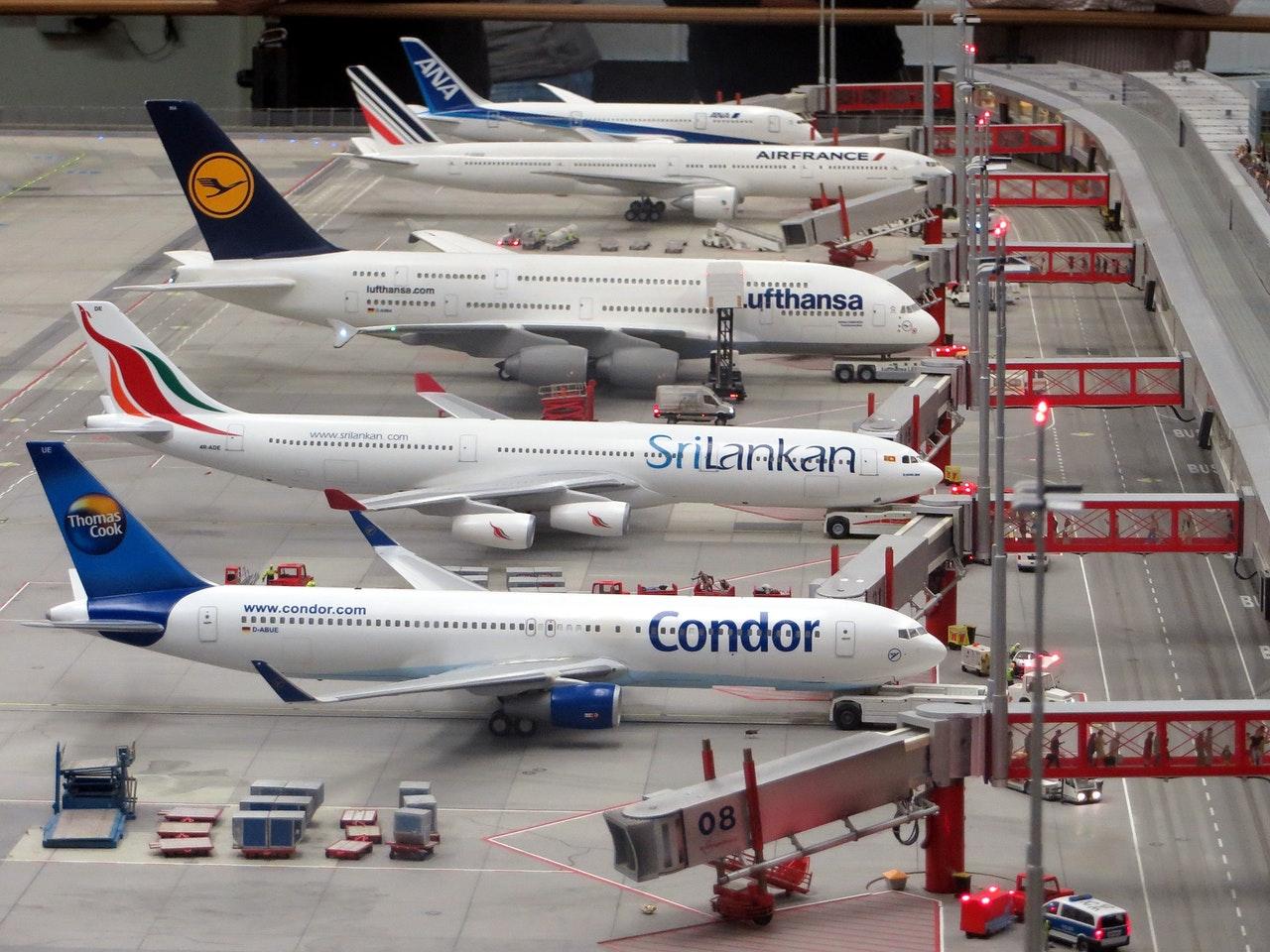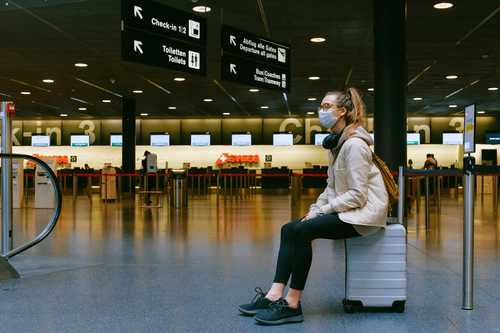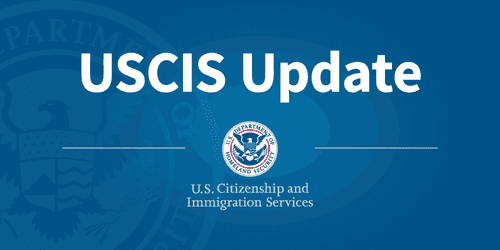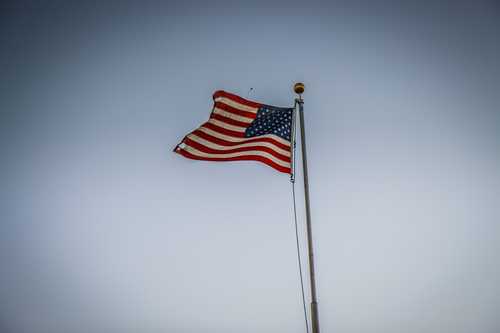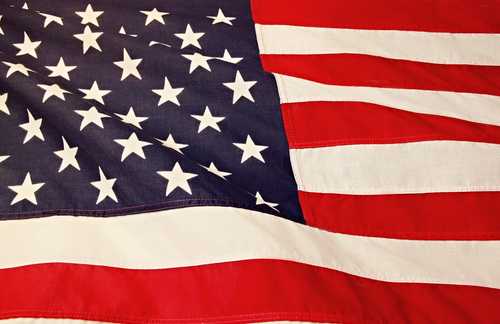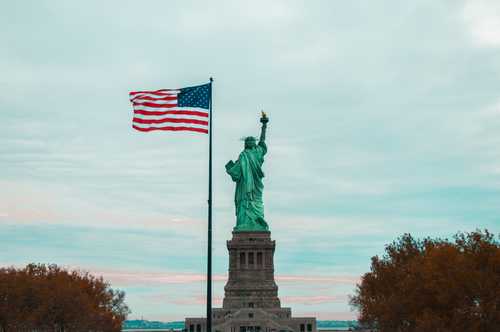With the spread of the novel coronavirus the US shut its borders down to several countries. Are you asking yourself, “Do the coronavirus travel restrictions or corona virus travel warning apply to me? Will the latest coronavirus travel advisory affect my travel plans? Since last week, the US had added to the travel ban 26 European countries and during the weekend the UK and Ireland were also added to the travel ban coronavirus list. In situations like this information is rapidly changing; however, in this article I would like to shed more light on the coronavirus travel restrictions and highlight the most important parts of the CBP’s coronavirus travel advisory and ICE’s F-1 student coronavirus travel advisory.
Which countries are on the coronavirus travel ban?
The countries on the coronavirus advisory list are: People’s Republic of China, 26 European countries and since Saturday – the UK and the Republic of Ireland.
On January 31 the President of the United States signed a Presidential Proclamation regarding the China coronavirus travel ban – “Suspension of Entry as Immigrants and Nonimmigrants of Persons Who Pose a Risk of Transmitting 2019 Novel Coronavirus and Other Appropriate Measures to Address this Risk.” This was put in effect on February 2, 2020 and relates to any traveler who has been physically present in China.
Also, this Saturday, March 14, President Trump’s coronavirus travel ban was extended to 26 European countries – members of the Schengen free movement zone. On Sunday it was decided the UK and the Republic of Ireland to be included in the coronavirus travel restrictions list due to the spreading coronavirus. These travel restrictions will come into force midnight on Monday, March 16, Eastern Standard Time.
Are there exceptions to the US coronavirus travel ban?
There are a few exceptions to the coronavirus travel ban. Per U.S. Customs and Border Protection’s (“CBP”) coronavirus guidance, available here, the suspension of entry does not apply if you are:
- A lawful permanent resident of the United States. This means that if you are a green card holder, the coronavirus travel advisory does not apply to you.
- A foreign national who is the spouse of a U.S. citizen or lawful permanent resident. The US coronavirus travel restrictions do not apply to you, if you are the husband or wife of a US citizen or green card holder.
- A foreign national who is the parent or legal guardian of a U.S. citizen or permanent resident who is both unmarried and under the age of 21. If you have a dependent child who is a US citizen or green card holder, the coronavirus US travel restrictions do not apply to you.
- A foreign national who is the sibling of a U.S. citizen or lawful permanent resident as long as both are unmarried and under the age of 21. The new travel ban coronavirus policies do not apply to you, if you are unmarried and under the age of 21 and the sibling of a US citizen or green card holder who is also unmarried and under the age of 21.
- A foreign national who is the child, foster child, or ward of a U.S. citizen or lawful permanent resident, or who is a prospective adoptee that wishes to enter the United States pursuant to the IR-4 or IH-4 visa classifications. If you are seeking to adopt a foreign national child, the coronavirus travel ban should not stop your adopted child from entering the country.
- A foreign national traveling at the invitation of the United States Government for a purpose related to containment or mitigation of the virus.
- A foreign national traveling as a nonimmigrant crewmember or any foreign national otherwise traveling to the United States as air or sea crew. If you are a crewmember, the coronavirus travel restrictions should not bar you entry from the United States.
- A foreign national seeking entry into or transiting the United States as a foreign government official or immediate family member of an official foreign national whose entry would not pose a significant risk of introducing, transmitting, or spreading the virus, as determined by the CDC coronavirus travel advisory.
- A foreign national whose entry would further important United States law enforcement objectives will not be banned from entering the US due to the recent travel ban coronavirus policies.
- A foreign national whose entry would be in the national interest, as determined by the Secretary of State, the Secretary of Homeland Security, or their designees, may enter the United States from the coronavirus banned country list.
What documents are required when entering the US during the corona virus travel ban?
Additionally, if you fall into one of the above exception categories and wish to enter the US from an international airport, according to CBP’s Coronavirus Guidance, you will need to possess a valid passport or a valid visa or other permissible travel authorization, and one of the following:
- An I-551 (Green Card);
- An A-1, A-2, C-2, C-3, G-1, G-2, G-3, G-4, NATO-1 through NATO-4, or NATO-6 visa;
- A C-1, D, or C-1/D visa;
- An advance parole document;
- Documentation proving that the foreign national is traveling at the invitation of the United States government for a purpose related to containment or mitigation of the virus;
- Other documentation from the U.S. Department of Homeland Security, U.S. Customs and Border Protection, or U.S. Department of State indicating that foreign national meets one of the above-mentioned exceptions;
- If you seek to qualify for one of the exceptions related to spouses, parents, siblings, or children of U.S. citizens, you should present a document proving your relationship with the relative and his/her status in the US, along with travel documents that state the purpose of your travel.
Please note, just because you fall into one of the exceptions to the coronavirus travel ban and can provide one of the above documents, it does not mean that your travel into the United States will be problem free. Anyone entering the United States who has recently been to one of the countries on the coronavirus travel restriction list, will have to undergo medical screening at the airport. There are reports of long lines at airports across the US.
Which airports are open to travelers from countries on the coronavirus travel ban list?
Lastly, individuals returning to the United States from countries affected by the coronavirus which are on the coronavirus travel advisory list will be required to travel through 13 airports where they will be subjected to screening. These 13 airports are:
- Boston-Logan International Airport (BOS), Massachusetts
- Chicago O’Hare International Airport (ORD), Illinois
- Dallas/Fort Worth International Airport (DFW), Texas
- Detroit Metropolitan Airport (DTW), Michigan
- Daniel K. Inouye International Airport (HNL), Hawaii
- Hartsfield-Jackson Atlanta International Airport (ATL), Georgia
- John F. Kennedy International Airport (JFK), New York
- Los Angeles International Airport, (LAX), California
- Miami International Airport (MIA), Florida
- Newark Liberty International Airport (EWR), New Jersey
- San Francisco International Airport (SFO), California
- Seattle-Tacoma International Airport (SEA), Washington
- Washington-Dulles International Airport (IAD), Virginia
During coronavirus, can F-1 students take online classes?
F-1 students may take online courses during the coronavirus campus closures. F-1 students are normally required to attend classes and can only take one online class per semester. However, now with the rapidly changing situation due to the coronavirus spread, all universities are shutting down campuses and forcing their students to study from home.
Are you a F-1 student who is asking herself, “Will I violate my visa conditions because of the coronavirus restrictions and campus closures? Or will I violate my F-1 status because of coronavirus mandated home schooling and online classes?” Below we have summarized U.S. Immigration and Customs Enforcements’ (“ICE”) latest F-1 student coronavirus guidance.
The government has taken the coronavirus crisis into consideration. In a broadcast message the Student and Exchange Visitor Program (“SEVP”) states that they “intend to be flexible with temporary adaptations”. All F-1 students are excused to take all their classes online during the coronavirus crisis and associated coronavirus travel ban, as long as all program changes are documented and SEVP receives information upon request. In addition, SEVP should be notified of any procedural adaptations within 10 business days of the change. Because of the fluidity of the coronavirus crisis and coronavirus travel restrictions, SEVP is not requiring prior notice of any procedural changes, allowing schools to comply with local health emergency declarations.
Furthermore, nonimmigrant students who are engaging in practical training should consult with their employer for alternative ways of employment such as teleworking during the coronavirus campus closures and coronavirus travel ban.
What if an F-1 student or J-1 exchange visitor cannot return home because of the coronavirus?
An F-1 student wishing to extend their stay in the US during the coronavirus crisis and associated corona virus travel ban may apply for an extension of their F-1 status with USCIS. It is important to work closely with your designated school official as there are many requirements, such as presenting a valid Form I-20, which can only be met with the assistance of your designated school official.
The State Department’s Bureau of Educational and Cultural Affairs (“ECA”) has issued a statement that there are procedures in place for J-1 exchange visitors regarding the expanded travel restrictions due to the coronavirus threat. To find the latest J-1 visa coronavirus updates, please visit the Department of State’s website dedicated to the coronavirus crisis.
Regarding J-1 exchange visitors who are currently inside the United States, ECA has stated that wherever their program needed, should be extended with upcoming end dates until April 1, 2020. It is important to note that these extensions will not be funded by the US government, so J-1 exchange visitors will be responsible for their own for and housing related costs. Also, to qualify for the extension there should be an appropriate activity for the J-1 exchange visitor to engage in during the coronavirus extension period.
The Department of State has also noted that if a J-1 exchange visitor prefers to return to a country on the corona virus travel ban list, she may do so on foreign flights from the United States to the country on the coronavirus travel restriction list and on code-share flights with US-flagged airlines.
How to extend your stay in the US during the coronavirus?
If you are worried to go home because of the coronavirus travel advisory and coronavirus restrictions, you may be able to extend your status in the United States. For more information on how to extend your stay during the coronavirus travel ban, you can visit the USCIS Extend Your Stay website.
Generally, in order to remain in the US during the coronavirus crisis and coronavirus travel restrictions, you will need to file a request with U.S. Citizenship and Immigration Services (“USCIS”) on Form I-539, Application to Extend/Change Nonimmigrant Status. In order to be allowed to stay in the US during the coronavirus restrictions, you will have to prove that you are eligible for an extension.
You may apply to extend your stay if:
- You were lawfully admitted into the United States with a nonimmigrant visa.
- Your nonimmigrant visa status remains valid.
- You have not committed any crimes that make you ineligible for a visa.
- You have not violated the conditions of your admission.
- Your passport is valid and will remain valid for the duration of your stay.
In addition to the above, you should also explain the reason why you are applying for an extension of stay.
In their latest broadcast message about the coronavirus crisis, available here, the Department of State has encouraged J-1 exchange visitors and their sponsors to visit their website where they will find information about how to extend their J-1 status in special situations.
Our immigration lawyer is here to help you with your extension of status case
Do you need assistance preparing your extension of status application with USCIS? Would you like more information about how to navigate the coronavirus travel ban? As an experienced immigration law firm, Pandev Law has the knowledge and experience to guide you through your immigration case even during these difficult times.
Please complete our contact form, email [email protected], or call us at (212) 220-6652, to schedule a consultation with our immigration attorney.
Disclaimer: This blog article is provided by Pandev Law, LLC for general educational and informational purposes only. Although this article discusses general legal issues, it does not constitute legal advice nor does it establish an attorney-client relationship. No reader should act or refrain from acting on the basis of any information presented in this article, or elsewhere on this website, without seeking the advice of appropriate legal counsel, or other professional counsel, licensed in the relevant jurisdiction. Pandev Law, LLC expressly disclaims any and all liability with respect to any actions taken, or not taken, based on any content of this article or website. This blog article may constitute attorney advertising. Prior results do not guarantee a similar outcome.
I offer confidential 30 minute & 1 hour consultations.
Schedule a consultation

